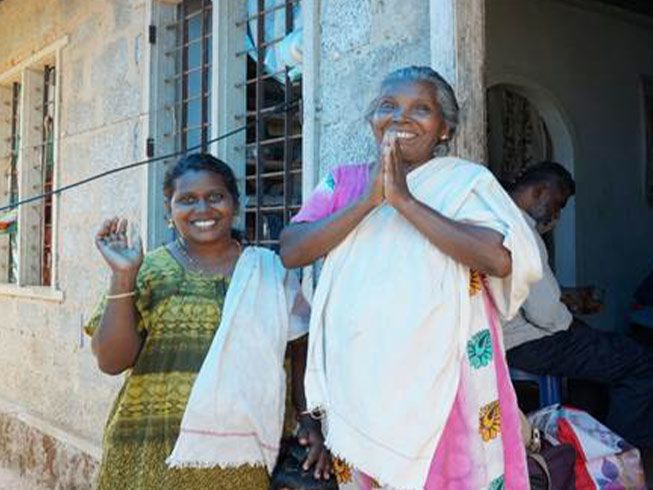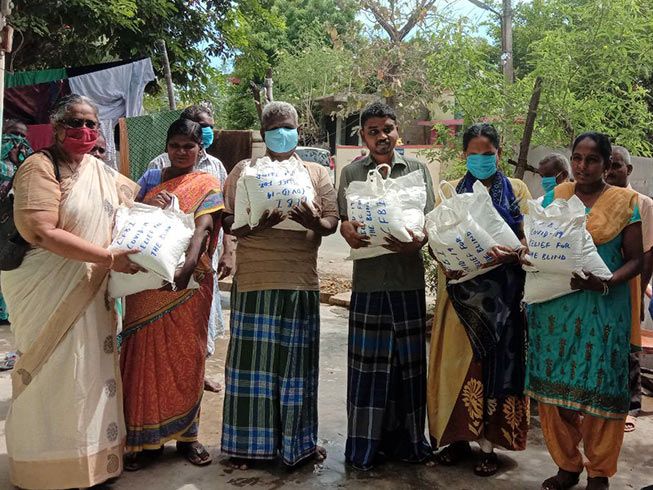The Indian government has recently updated the Financial Contribution (Regulation) Act 2010, through the Financial Contribution (Regulation) Amendment Act 2020 on 29 September 2020. There has been much negative reporting on the amendments made; however, upon closer inspection of these amendments, one has to conclude that compliant and transparent non-profit organisations in India have little to fear in the immediate future. The main concern is that the new FCRA amendments would give the Indian government greater powers to act if it were to decide to try to squeeze out organisations seeking to support the minority religions within India. But any government could find ways to squeeze out organisations if they chose, and we should pray that all governments will act with integrity and fairness.

In the UK, all charities are regulated by a Charity Commission and additionally have to comply with countless financial regulations. Additionally, all charities have to undergo a “Know Your Customer” process annually, conducted by the charity’s bank, in which the bank performs due diligence checks on all the charity’s trustees and the charity completes paperwork and provides an in depth review of operations over the past year, including all procedures and policies in place. In absence of a Charity Commission equivalent, the Indian government uses the FCRA regulations as the means to regulate non-profits within India, specifically the substantial contributions received from overseas. Like the Charity Commission and financial regulations in the UK, it is used to stop the abuse of the status of non-profit and to ensure charities use funds donated to them from overseas according to their charitable objects.
Reduction in permitted overhead costs is a positive change
The amendments of note include:
- A decrease in the permitted limit of overhead expenses – down from 50% to 20%. Until now, a charity could use up to 50% of overseas income received for its overhead costs. This is a positive change as it ensures that more of the donations received are spent on the beneficiaries the charity exists to support. Many charities in the West unfortunately operate at real overheads of 40% to 60%, meaning that only 60p to 40p of every pound donated leaves the country. When received into India, the 60p to 40p could have been reduced by a further 50%. The Indian government has now restricted this to 20%. Barnabas Fund continues to operate at 12% overheads, and welcomes this specific amendment in order for beneficiaries to receive a greater share of charitable donations from overseas. Furthermore, Barnabas Fund does not fund project requests where high overheads are included within the budget. We also continue to allocate 100% of donations received for a specific project, to that project, and do not subtract any overheads from the donation received. All overheads are covered by gifts generously donated to our General Fund.
- All office bearers (Board members/Trustees) in the organisation should now be disclosed. This is now a requirement. Again, the Charity Commissions in the UK have required this for many years, displaying all the names of these on the Charities Register. It is also the charity’s responsibility in the UK to keep the register updated. Just like the Charity Commission, this disclosure will be used to highlight conflicts of interest, and provide transparency as to who controls the monies received and if these individuals are also involved in other organisations.
- FCRA status to be renewed every five years. Indian charities will have to renew their FCRA registration every five years from now on. This is an onerous step, but unfortunately the abuses of the FCRA registration by non-compliant and non-transparent charities in India in the past have necessitated this introduction. Again, compliant organisations should have nothing to fear. As mentioned above, in the UK, all charities banking at the large national banks have to complete a full “Know Your Customer” process annually. This includes due diligence checks on all the trustees, a full review of the past year’s operations, and also a review of all the charity’s policies and procedures.
- Prohibition on transfer of foreign contribution. In the past, FCRA registered organisations were used as a conduit for forwarding overseas grants to other entities within India. In some instances, individual entities forwarded funds to more than 700 other organisations. This was seen as a way to circumvent the FCRA restrictions and the abuses that the regulations were designed to stop, making it very difficult for the Indian government to determine whether the recipient organisations were indeed compliant. The payment of advances and re-imbursements to staff out of foreign monies received is also now prohibited. This is a positive move, as it minimises the risk of monies being misspent on overheads – introducing a restricted fund concept.
- All FCRA registered organisations will now have to open a bank account in the State Bank of India, Delhi, and this account would be the only account able to receive foreign donations. This does inevitably increase the ability of the Indian government to monitor incoming transactions. This process is undoubtedly a huge administrative task for smaller charities within India as they register with the SBI bank for an account.
- At the same time, each FCRA registered organisation will lose previous registration and will need to re-apply. All organisations will now need to apply afresh for a FCRA registration and then ongoing as per point 3 above.
- The Indian government has the power to prohibit monies due to be received into the FCRA bank account from being received and monies already received from being transferred out. This is the most concerning aspect of the FCRA Amendment Act. The Indian government now has greater power to intervene without having to prove that there was a violation. The regulators and banks in the UK have the power to freeze bank accounts as well, before any proof of violation is established. The charity will then not have any access to funds once frozen.

Government had to take steps to eradicate abuses
Unfortunately there have been many charitable organisations within India who were non-compliant and not transparent in their operations and financial transactions. Understandably the Indian government had to take steps to eradicate these abuses. Western governments, through regulators and banking regulations, had already taken similar steps with the same end goal – i.e. to minimise the risks of charitable organisations misusing the status and donated funds, especially if spent not according to the charity’s charitable objects.
If an Indian charity within India operates transparently and spends its income according to its charitable objects, it should not fear the new FCRA regulations. As said before, the main concern is that the new FCRA amendments do give the Indian government greater powers to act in the future if it seeks to squeeze out organisations seeking to support the minority religions within India, but a similar risk is present in the West too.

